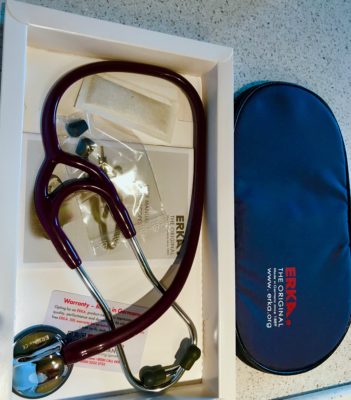I watch some TV (and essentially no commercials, thanks to DVRs) and have been enjoying some shows: Necessary Roughness and Covert Affairs. Yes, put a reasonably attractive female in the lead role of a show with some action and I might watch. Demographic shocker.
So, within the last two days I saw one completely egregious professional breach, and one exercise of pretty awful medical judgement (in an ED, which make it way worse for me), and I will now outline my concerns/gripes.
(Yes, I’m aware they’re TV shows, and are therefore not reality. What I’m unhappy with is the glib way in which these terrible decisions played out, like it’s not a big deal to act against the interests of your patient, even especially, on TV). (I think TV behavior, not the cartoon violence but the everyday mundane stuff, influences how regular people think, which is why I’m writing this: so the zero regular people who watch TV and read this blog have something to consider).
So the Necessary Roughness (episode Anchor Roughness) thing: (Background): the protagonist is a female psychologist hired by a football team to get their star player “TK” (with more than a mild resemblance to “TO“, the former 49ers Eagles Cowboys Bills Browns wide receiver) playing and catching; it’s a TV troubled relationship. (Player is aware she works for the team). In the show TK threatens to leave the team, is convinced not to leave in a bluff by the team to send him to a cold climate, and TK decides to stay with the team. In the denouement, it is revealed that the whole idea for the bluff was the psychologists’ idea, for which she was praised by the team.
Umm, I have an objection. A psychologist, privy to a patients’ secrets, shouldn’t in any way offer information to their employers to influence their behavior in an undue manner. Like, telling the team they don’t like a particular climate (implied in the show, never stated, but the inference is there). Does the fact that the player knows she’s hired by the team make any emotional manipulation okay? I say no.
Bad psychologist. Bad. Unethical. IMHO. Let’s see if I get sued by a fictional character.
And then the one that is less a professional slight and more an embarrassment.
On Covert Affairs (episode Space Jam) at the end the heroine is watching her nieces when one has a Very Minor head bonk. Panic out of proportion ensues, child is taken to an ED, and insistence on a CT scan of this approximately 8 year old without a loss of consciousness, with a normal neuro exam, without vomiting (or one instance, I deleted the episode quickly out of disgust), and an overbearing nature commanding the Central Casting ED doc to do a head CT. (ED doc then makes a pass at Heroine, which tease goes into the next show). Patient will get a CT.
Umm, Professionally No. The patient in the show didn’t need a CT. The family in the show needed a professional exam and reassurance, and time. Not radiation.
Okay, so that’s disappointing without being a professional boundaries violation, but still, the way the TV doc caved and agreed to a CT on a patient who clearly didn’t need one was appalling.
(For the record, I’ve done Head CT’s for wishy reasons, but I have a conversation, if possible, with the person getting the scan when an adult, and have refused a few in patients who clearly didn’t need them. In the Press Ganey Hell World coming I probably won’t refuse in the future).
Bad TV medicine. Bad.



Agreed, and this is reason #45 why ED staff should NEVER watch “medical” inspired drama. :P
Of course NR and CA are not generally medical related so I can see how you could be ambushed. I can’t watch House without my brain exploding.
Hey, I bet that would get me a CT, even here in Canada…
Elaborate, please, on the “Press-Ganey Hell World.” I know it by a different name I won’t gratuitously publicize, but it says “Give the Customer what she wants, irrespective of what the Patient needs…”
So you anticipate the phone call from the “patient satisfaction representative” that you know is coming after you decide that antibiotics aren’t really needed for the sniffles, or that the minor head bonk doesn’t mandate a CT (“EVERYBODY must get scanned…” )
Right around the corner, you see “Pay for Performance” coming, but you know that the “quality indicator” most easily measured is “customer engagement and satisfaction” and that it’s a five-point Likert scale, 4 being “very good” and 5 being “excellent”, and further that “Pay for Performance” actually means “Penalty for Anything Less Than Excellent”, that your ED’s score has been two point something since Col Sanders was a corporal, and your “stretch goal” this quarter is four point eight.
@Dar Long: We had a Canadian tourist couple drive into a ditch during marginal weather on our Northern Tier Interstate. The passenger loudly lobbied for a CT for her driver boyfriend while the ED doc put a couple of staples into his superficial head laceration (sustained on exiting the stopped car). The ED doc stood his ground, calmly explaining why it wasn’t indicated, while I silently cheered.
you should probably never watch Royal Pains then….
and never,ever watch House. It’s awful.
I beg to disagree with Marsha, I am really amused by Dr. House and his endless complaints and banters lol.